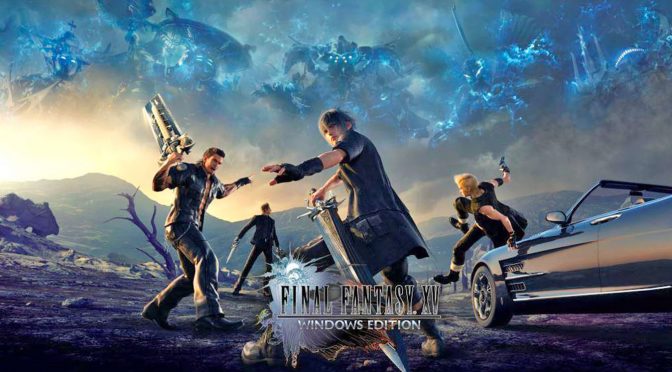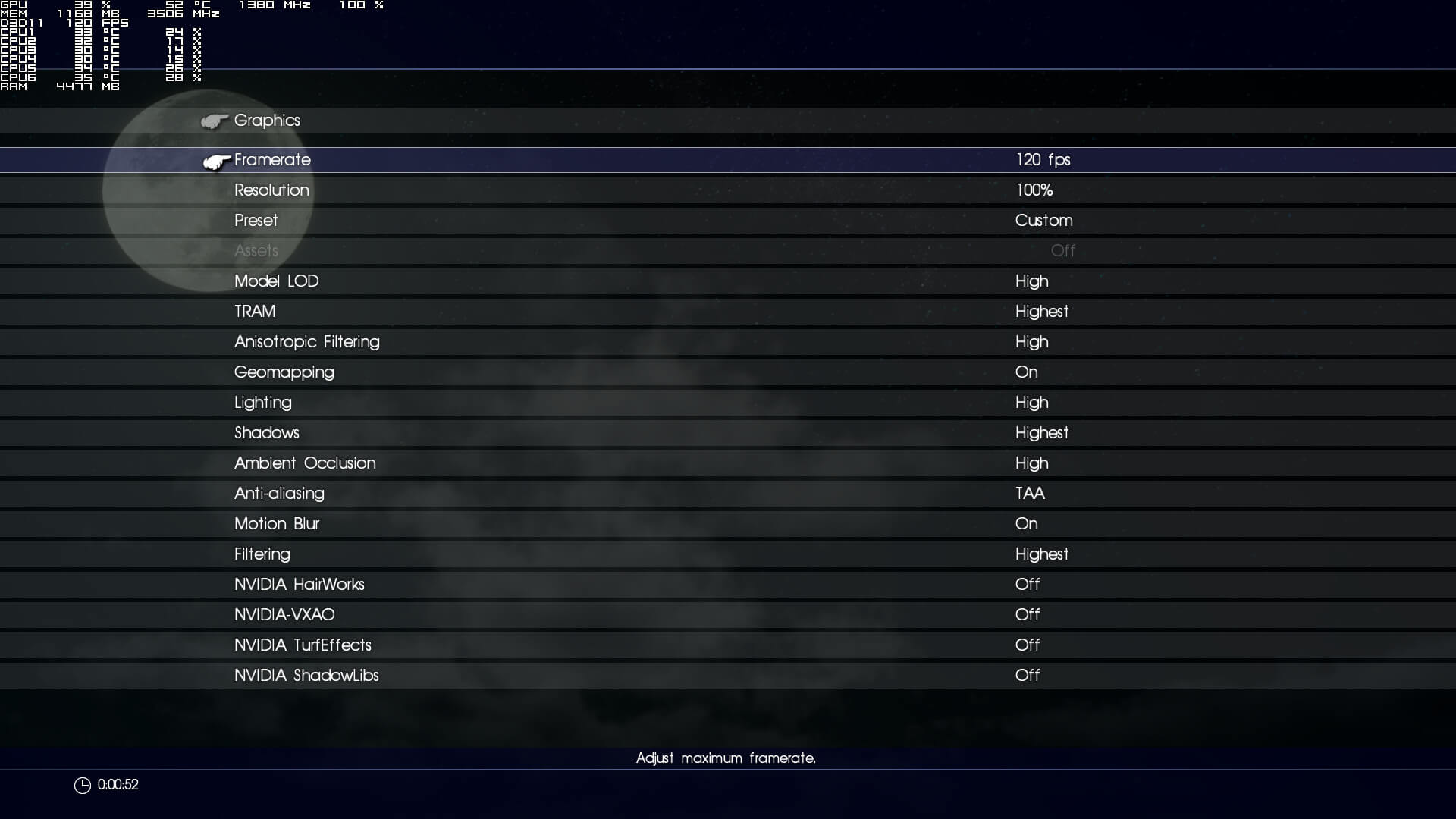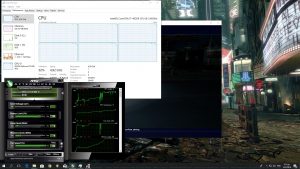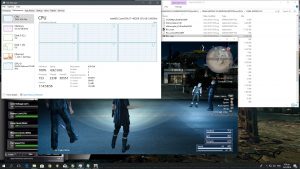We’re pretty sure that a lot of our readers were looking forward to our comparison between the pirated and the Steam version of Final Fantasy XV. And after numerous tests, we can safely say that the pirated version runs better than the Steam version.
Let’s start with the basics. For this comparison we used an Intel i7 4930K (overclocked at 4.2Ghz) with 8GB RAM, NVIDIA’s GTX980Ti, Windows 10 64-bit and the latest version of the GeForce drivers. Both the Steam and the pirated versions were installed on an HDD. For our testing we used the following settings on both versions (Highest settings without the NVIDIA Gameworks effects).
Right from the start, the pirated version loads faster than the Steam version. The Steam version needed 30 seconds in order to launch (for the first time) whereas the pirated version was ready in just 3 seconds. The second launch (by exiting and then re-launching the game immediately) needed 8 seconds for the Steam version, whereas the pirated version was – once again – ready in 3 seconds. The in-game maps also loads faster in the pirated version (58 seconds versus 1 minute and 40 seconds). Below you can find a video with the loading times for both the pirated and the Steam versions.
The Steam version also suffers from additional stuttering. While we did notice very minor stutters on the pirated version, things were a lot worse on the Steam version. By taking a closer look at the CPU/GPU/RAM and Disk usage, we can finally discover what is causing these additional stutters. From the looks of it, the Steam version is constantly using the hard disk drive, resulting in random stuttering. Those with SSDs may be able to brute force their way, however, this should not be an excuse or a solution as the pirated version does run better on HDDs.
But how about performance? Our initial test at 1280×720 on the Highest settings (without the NVIDIA Gameworks effects) were promising for the Steam version. Our first scene performed almost similar to the pirated version. Performance was identical in these two versions when we disabled two and then four CPU cores. For all of our comparisons, Denuvo/Steam version images are on the left and Denuvo-free/pirated version images are on the right.
However, things went downhill once we upped the resolution to 1080p and started exploring the vast environments. As we can see in the following comparisons, the pirated version was always running better than the Steam version. Moreover, these comparisons are almost at the same time of day, making them as legit as they can get.
Not only that, but the unoptimized scenes we reported in our PC Performance Analysis were nowhere to be found in the pirated version, resulting in a far better experience.
Furthermore, the Steam version seems to suffer from some performance issues that occur the longer you’re playing the game. For example, here is a scene running at 60fps after playing the game for 10 or more minutes. And here is the same scene with the exact same settings running with 75fps after simply re-loading the chapter. Do note that the pirated version does not suffer from this issue as performance remained great for longer sessions (we were able to play for more than an hour and performance did not degrade).
Square Enix released today a patch which did not fix any of the aforementioned issues.
In conclusion, the pirated version of Final Fantasy XV runs better than the Steam version. We don’t know whether this is due to the Denuvo anti-tamper tech or due to optimization issues that can be resolved via a future patch. The point is that the pirated version has significantly less stuttering, loads way faster, and runs better/faster as it is not plagued by the unoptimized scenes that we’ve witnessed in the Steam version!

John is the founder and Editor in Chief at DSOGaming. He is a PC gaming fan and highly supports the modding and indie communities. Before creating DSOGaming, John worked on numerous gaming websites. While he is a die-hard PC gamer, his gaming roots can be found on consoles. John loved – and still does – the 16-bit consoles, and considers SNES to be one of the best consoles. Still, the PC platform won him over consoles. That was mainly due to 3DFX and its iconic dedicated 3D accelerator graphics card, Voodoo 2. John has also written a higher degree thesis on the “The Evolution of PC graphics cards.”
Contact: Email















